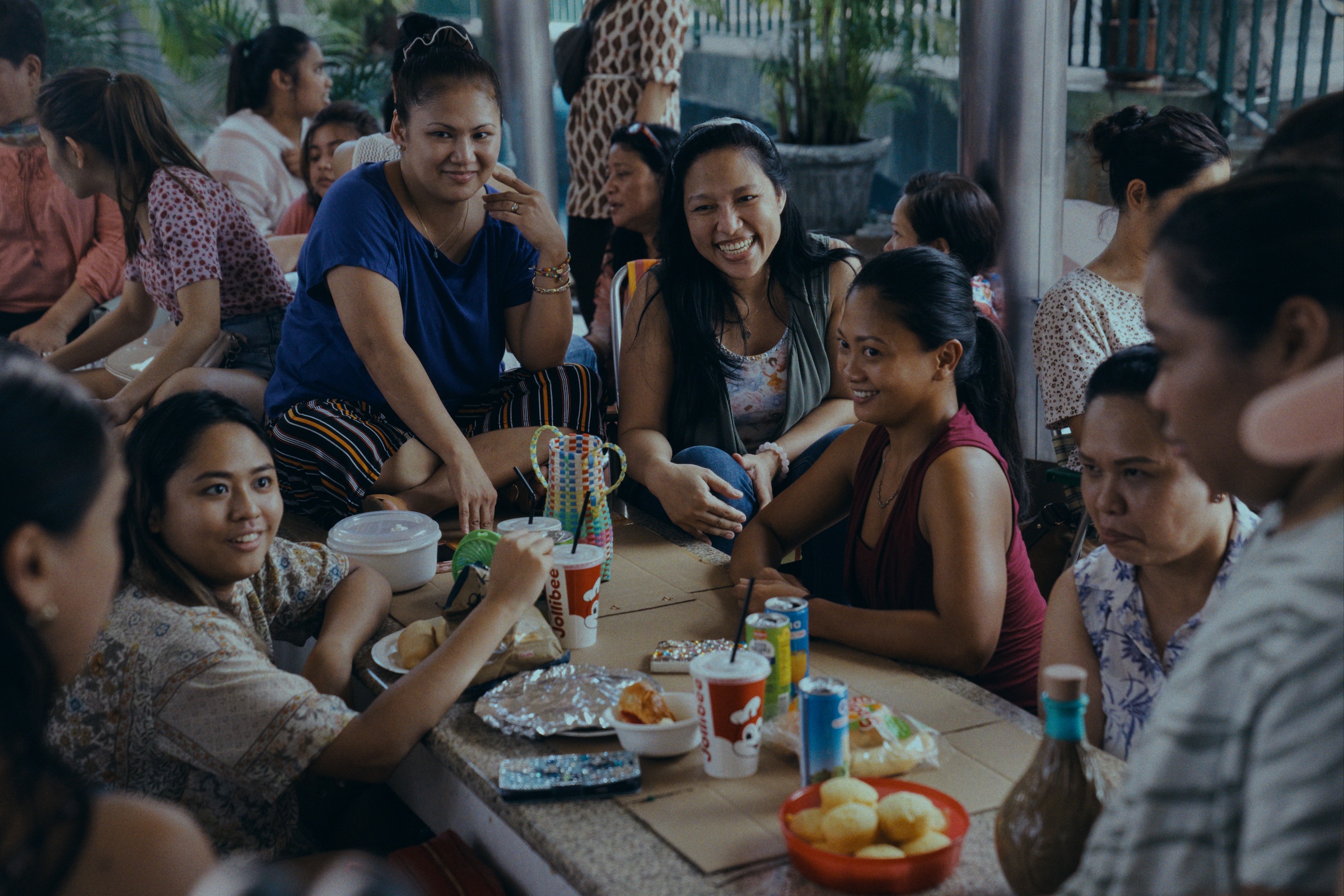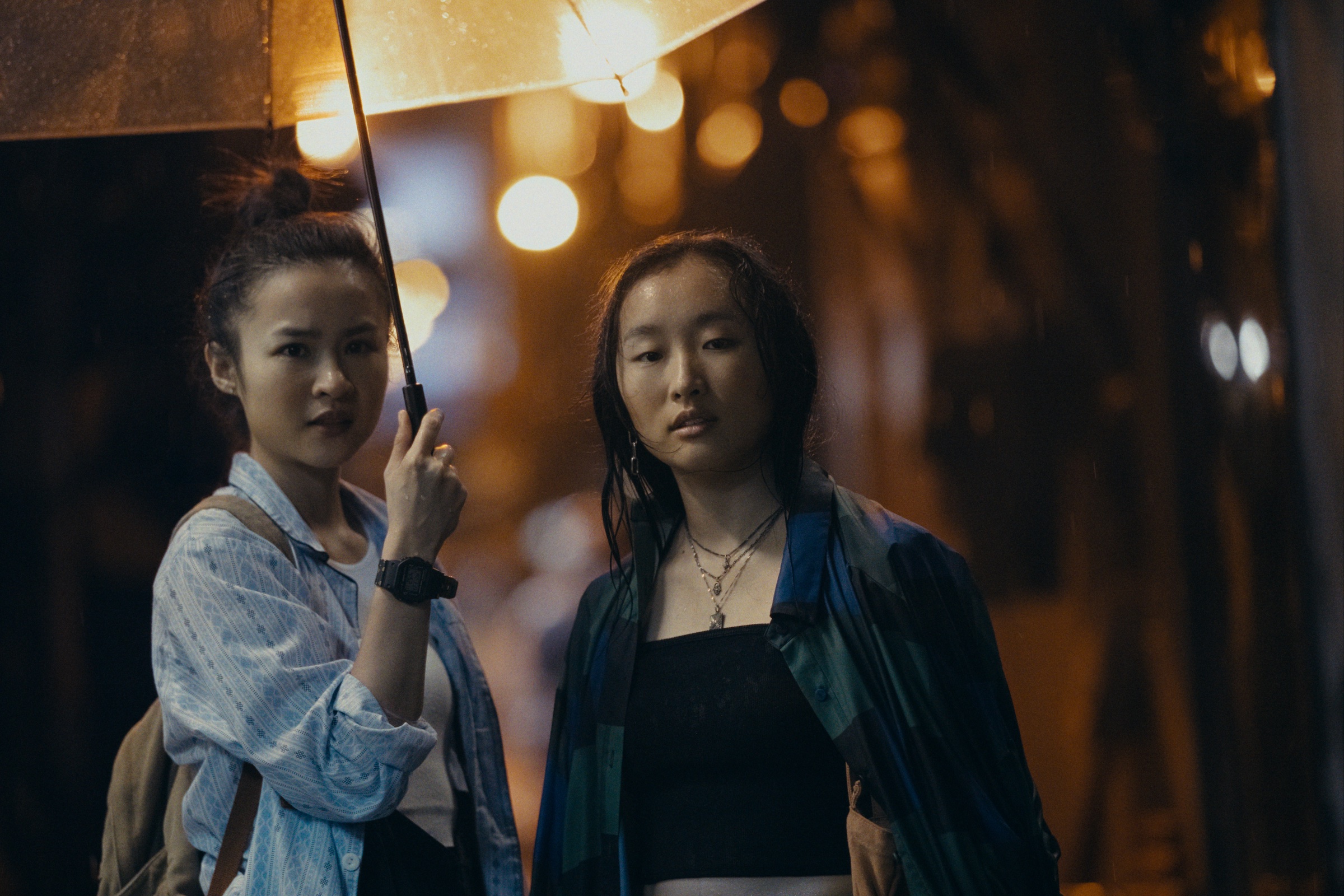
Warning: This post contains spoilers for Expats
Lulu Wang first read The Expatriates by Janice Y. K. Lee while she was on the press tour for her acclaimed 2019 film The Farewell. Traveling through Sydney and meeting a stream of people from the global Asian diaspora, she connected with the 2016 novel, which centers on three American expats living in Hong Kong.
“I thought it was incredibly evocative and rich, because of all of these different characters with different backgrounds intersecting in this one place in time,” Wang says. “It felt like a microcosm of the whole world.”
Wang has adapted the book into a close cousin: A quietly thrilling six-episode drama titled Expats about privilege, class, loss, and grief that premiered on Prime Video in January. The series opens in the aftermath of tragedy. Something terrible has happened that touches the lives of each of the titular expats—Margaret (Nicole Kidman), Hilary (Sarayu Blue), and Mercy (Ji-young Yoo)—and the unfolding story shows us how they handle it.
The penultimate episode of Expats, titled “Central” after Hong Kong’s government complex and business district, captures the crux of the story. Wang both wrote and directed “Central,” which punctures the expats’ bubble, illustrating the ways in which their choices spill over and affect others—including those closest to them and those they’ll never know.

Wang originally turned the project down after Kidman, whose Blossom Films produced the show, sent her The Expatriates to read. She wasn’t sure that she’d have the creative freedom to explore all of the complexities and contexts that intrigued her about the book.
“I wanted to be able to depict that wealth and privilege, but also be able to contextualize it and make sure that we weren't celebrating it,” she says. “Because that's the question that I'm always asking, is: How do you know that something is a social critique if it also embodies that world, and it's shot beautifully, and you love the characters within it? Isn't that, in some ways, aspirational and celebratory?”
Much of “Central,” which airs on Feb. 16, spends time with the “helpers,” live-in domestic workers, usually women from the Philippines or Indonesia, who become indispensable to the expats they work for. As Lee writes, they “take care of all the housework and babysitting for the astounding sum of US$500 a month.” Expats details the stories of two workers, Essie (Ruby Ruiz) and Puri (Amelyn Pardenilla), in a way the book does not. Their passions, their families, their gossip—all come into focus. So do their real and complicated feelings about the families who employ them.
It’s the episode that Wang took on the festival circuit, to let the audience enter the story through a side door and try on another perspective. Margaret repeats the refrain that Essie is family, but what does that mean to Essie? Who does it really serve?
At the same time, Wang didn’t want to create a total criticism of the main characters, devoid of empathy, in which “we're celebrating the fact that we hate them. That's also a form of entertainment, right?” she says. “And I wanted to be on neither side of that scale, but somewhere in between, where we have empathy, but we're also seeing the context in which they're making choices, they have blind spots.”
The show, though shot beautifully in muted cool tones, deals entirely in shades of gray. Wang leaves viewers to decide how we feel about these complex people, and how we might relate to them, or not. The show is a spectrum, and there are no resolutions or tidy endings.
To build the episode, in the all-women writers’ room, they watched documentaries to research the lives of the helpers. Then, once they got to Hong Kong, where they shot for four or five months, they met helpers in the houses of expat friends, struck up conversations, and asked them to share their worlds. Wang says it felt similar to how she researched The Farewell, interviewing her family members about the minutiae of their lives.
“Central” also grapples with Hong Kong’s 2014 Umbrella Revolution, which occupied the area. Protestors were angered by China’s plan to restrict Hong Kong electoral candidates to those approved by a government-controlled nominating committee, and they demanded that the then-upcoming election for Hong Kong’s leader be free from Beijing’s interference, and thus truly independent. Lee’s novel is set in 2010, but Wang pushed to set Expats four years later, to include the political movement.

“In representing Hong Kong as a character in the series, you can't talk about Hong Kong without talking about its history, and its past and its present,” she says, “and the wounds and the hopes and the dreams and the fears of a place, and of the people who call this place home.”
Expats is, at its heart, a story about resilience: The resolve of Hongkongers to fight for democracy, the unseen daily tenacity of the helpers, and the resolve of the three main characters to rebuild in the wake of tragedy. The terrible thing that happens at the beginning sets off a chain of impossible challenges and decisions for each woman.
“I had hoped for a specific event, an unimaginable act of kindness, a forgiveness that would reset everything, that would give me permission to start living again,” Mercy narrates in the finale. “But there is no miracle that can reset everything. You must hold the pain and keep on living. The pain becomes a part of you, and soon you can’t recognize yourself without it.” There is no clear and satisfying resolution for her or Margaret or Hilary—just the tiniest glimpse into what the future could be.
“Life doesn't give us tidy endings or closures often, and so much of this show is about: How do you cope and how do you go on and how do you have hope when the world, when your life doesn't give you closure, when it doesn't give you clear answers?” Wang says. “I have never been one for the classic end, 'happily ever after, the end' kind of things.”
“But I always look for the hope,” she continues. “I'm looking for something that is true and poignant and hopeful and leaves people with a sense of their own resilience.”
Correction, April 1
The original version of this story misstated the purpose of the Umbrella Revolution. It was a movement for democracy, but not for independence.
More Must-Reads from TIME
- Donald Trump Is TIME's 2024 Person of the Year
- Why We Chose Trump as Person of the Year
- Is Intermittent Fasting Good or Bad for You?
- The 100 Must-Read Books of 2024
- The 20 Best Christmas TV Episodes
- Column: If Optimism Feels Ridiculous Now, Try Hope
- The Future of Climate Action Is Trade Policy
- Merle Bombardieri Is Helping People Make the Baby Decision
Contact us at letters@time.com